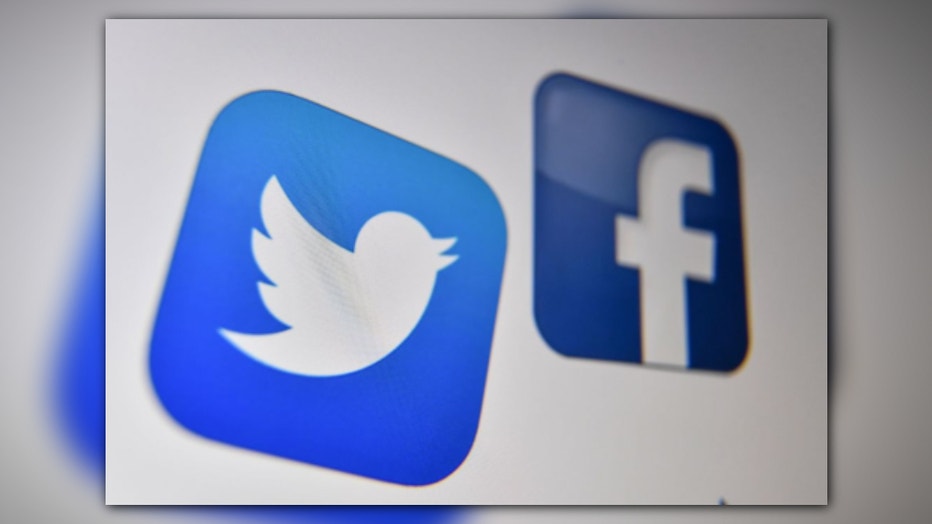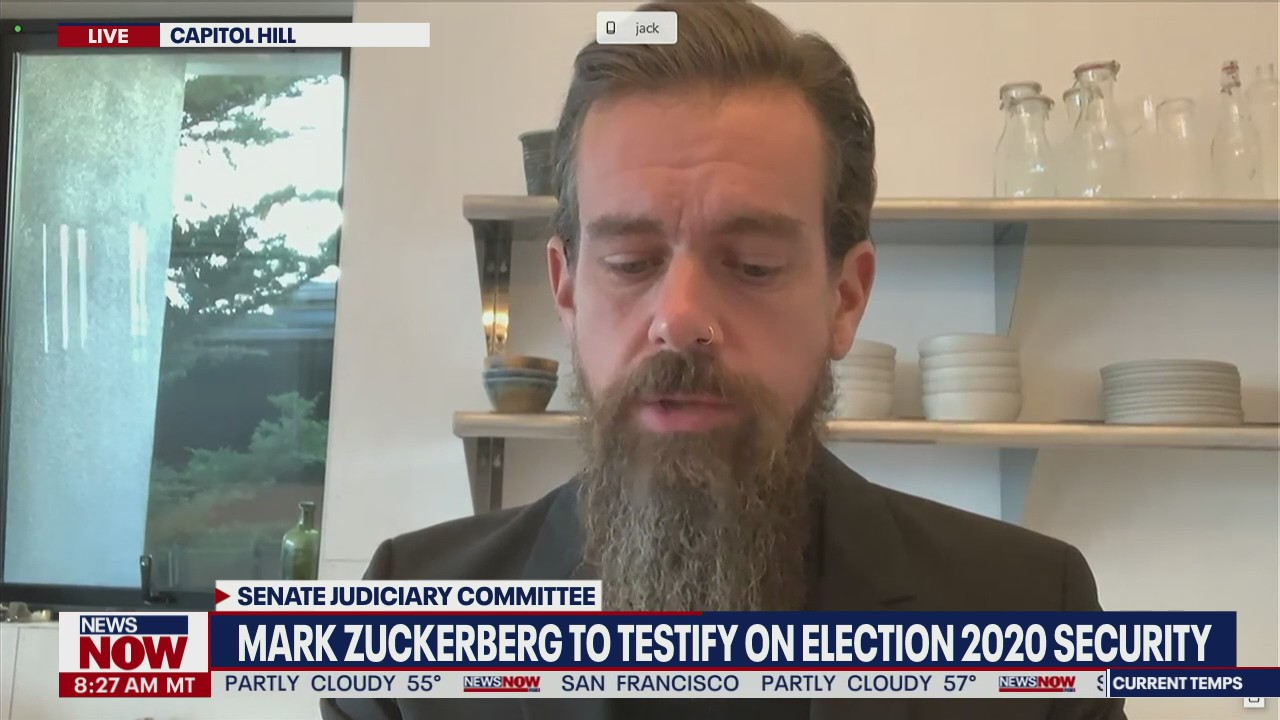300,000 tweets flagged over election disinformation, CEO says during Senate hearing
WASHINGTON (AP) - The CEO of Twitter says the social media site flagged some 300,000 tweets as part of efforts to combat disinformation in the period around the 2020 election between President Donald Trump and Democrat Joe Biden.
Twitter CEO Jack Dorsey and Facebook CEO Mark Zuckerberg are testifying Tuesday at a Senate Judiciary Committee hearing called to question their companies' actions around the closely contested election.
The senators are deeply divided by party over the integrity and results of the election itself.
RELATED: Facebook, Twitter, Google CEOs get earful on bias, warning of new limits
Prominent Republican senators — including the Judiciary Committee chairman, Sen. Lindsey Graham of South Carolina — have refused to knock down Trump’s unfounded claims of voting irregularities and fraud, even as misinformation disputing Biden’s victory has flourished online.
Graham, a close Trump ally, has publicly urged: “Do not concede, Mr. President. Fight hard.”
Zuckerberg and Dorsey promised lawmakers last month that they would aggressively guard their platforms from being manipulated by foreign governments or used to incite violence around the election results — and they followed through with high-profile steps that angered Trump and his supporters.
Twitter and Facebook have both slapped a misinformation label on some content from Trump, most notably his assertions linking voting by mail to fraud. On Monday, Twitter flagged Trump’s tweet proclaiming “I won the Election!” with this note: “Official sources called this election differently.”
In his written testimony for the hearing, Dorsey said, “We applied labels to add context and limit the risk of harmful election misinformation spreading without important context, because the public told us they wanted us to take these steps.”
Between Oct. 27 and Nov. 11, he said, about 300,000 tweets were labeled for content that was disputed and potentially misleading, representing 0.2% of all U.S. election-related tweets sent during the period. Of the labeled tweets, 456 also were covered by a warning message and were limited in how they could be shared. About 74% of the people who viewed those tweets saw them after a label or warning message was applied.
Facebook also moved two days after the election to ban a large group called “Stop the Steal” that Trump supporters were using to organize protests against the vote count. The 350,000-member group echoed Trump’s baseless allegations of a rigged election rendering the results invalid.
For days after the election as the vote counting went on, copycat “Stop the Steal” groups were easily found on Facebook. As of Monday, Facebook appeared to have made them harder to find, though it was still possible to locate them, including some groups with thousands of members.
Warily eyeing how the companies wield their power to filter speech and ideas, Trump and the Republicans accuse the social media companies of anti-conservative bias. Democrats also criticize them, though for different reasons. The result is that both parties are interested in stripping away some of the protections that have shielded tech companies from legal responsibility for what people post on their platforms. Biden has heartily endorsed such an action.
RELATED: Four Big Tech CEOs getting heat from Congress on competition
But it’s the actions that companies have taken around the election that are likely to be a dominant focus at Tuesday’s hearing.
The GOP majority on the Judiciary panel threatened Zuckerberg and Dorsey with subpoenas last month if they didn’t agree to voluntarily testify for Tuesday’s hearing. Republicans on the Senate Commerce Committee lambasted the two CEOs and Sundar Pichai, Google’s chief executive, at a hearing last month for what they said was a pattern of silencing conservative viewpoints while giving free rein to political actors from countries like China and Iran.
Despite fears over security in the runup to Nov. 3 and social media companies bracing for the worst, the election turned out to be the most secure in U.S. history, federal and state officials from both parties say — repudiating Trump’s unsubstantiated claims of fraud.

A photo taken on October 21, 2020 shows the logo of the the American online social media and social networking service, Facebook and Twitter on a computer screen in Lille. (Photo by DENIS CHARLET/AFP via Getty Images)
Facebook insists it has learned its lesson from the 2016 election and is no longer a conduit for misinformation, voter suppression and election disruption. This fall Facebook said it removed a small network of accounts and pages linked to Russia’s Internet Research Agency, the “troll factory” that has used social media accounts to sow political discord in the U.S. since the 2016 election. Twitter suspended five related accounts.
But critical outsiders, as well as some of Facebook’s own employees, say the company’s efforts to tighten its safeguards remain insufficient, despite it having spent billions.
There’s no evidence that the social media giants are biased against conservative news, posts or other material, or that they favor one side of political debate over another, researchers have found. But criticism of the companies’ policies, and their handling of disinformation tied to the election, has come from Democrats as well as Republicans.
Democrats have focused their criticism mainly on hate speech, misinformation and other content that can incite violence, keep people from voting or spread falsehoods about the coronavirus. They criticize the tech CEOs for failing to police content, blaming the platforms for playing a role in hate crimes and the rise of white nationalism in the U.S. And that criticism has extended to their efforts to stamp out false information related to the election.
___
AP Technology Writer Barbara Ortutay in Oakland, California, contributed to this report.



